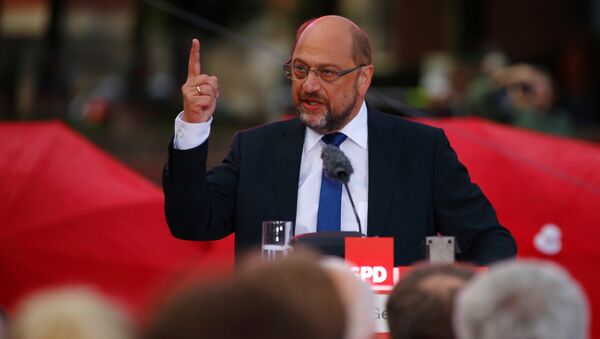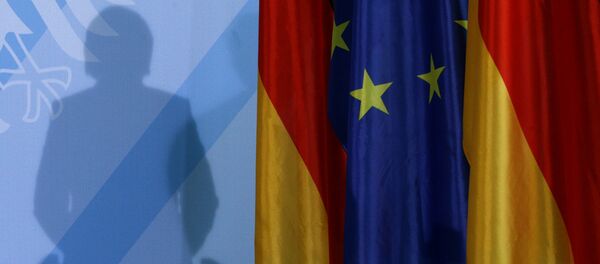Schulz has turned down the post of the foreign minister under increasing pressure from his own party, because of his earlier pledge that he will not become part of the cabinet headed by Angela Merkel.
"I hereby renounce joining the federal government and at the same time implore that this should be an end to debates about personalities" within the SPD, Schulz said in a statement.
He added that his personal ambitions "must be placed behind the interests of the party."
READ MORE: German Coalition Gov't Deal to Speed Up 'Downfall' of CDU/CSU, SPD Parties — AfD
Earlier in the day, acting German Foreign Minister Sigmar Gabriel harshly criticized Schulz for failing to deliver on his promise, saying that "what's left is regret at how little respect there is in the Social Democratic Party in our dealings with one another, and how little someone's word counts."
However, on Wednesday, after the deal on the coalition treaty was achieved, Martin Schulz announced his decision to quit the post of the SPD leader to become the foreign minister in the country's new cabinet himself, leaving Gabriel aside.
READ MORE: 'Hijabs on the Brain': Activist Lashes Out Against Germany's Migration Policy
Merkel's first attempt to form the coalition government that would include Merkel's CDU/CSU, the Green Party and the Free Democratic Party (FDP) collapsed as the Free Democrats pulled out from the negotiations in November after four weeks of fruitless efforts to find a consensus between the parties. Disagreements over issues such as migration and climate change were reportedly behind the breakdown of the talks.
Merkel had to form the coalition government after in September 2017 election her CDU/CSU alliance obtained 33 percent of votes and failed to secure an absolute majority. The SPD came second with 20.5 percent of the vote, while third place went to the FDP, which got 10.7 percent.




